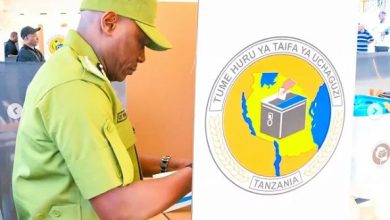CCM manifesto: Exploring social sector promises, potential impacts

DAR ES SALAAM: THE ruling party, Chama Cha Mapinduzi (CCM), has unveiled promises in its 2025 election manifesto, placing the social sector at the heart of its development vision.
The pledges, ranging from water and housing to education and health, reflect an ambitious drive to lift living standards and respond to long-standing demands from citizens.
Yet, as the country looks towards the polls, the real test lies not only in the strength of the commitments but also in how effectively they will be implemented. One of the most striking targets is the promise to expand access to clean and safe water to no less than 90 per cent of households.
This goal, if achieved, would mark a significant leap from current levels, particularly in rural areas where women and children still spend hours fetching water.
The plan goes beyond drilling boreholes or small projects; it entails the preparation and implementation of a comprehensive National Water Master Plan and the rollout of a National Water Grid.
This grid seeks to draw water from major reliable sources such as Lake Victoria, Lake Tanganyika and Lake Nyasa and distribute it to towns and villages across the country. Large-scale projects are also on the table, including the completion of the Kiwira-Mbeya water project, the Kidunda dam project and a transformative scheme to draw water from Lake Victoria to supply Singida and Dodoma.
ALSO READ: Tanga drills parliamentary aspirants heading to the General Elections
For rapidly growing urban centres, where population growth has outpaced infrastructure, such investments could ease water scarcity and support both domestic and industrial demand.
However, the scale of these undertakings raises questions about financing, technical capacity and long-term sustainability.
Past projects have suffered from delays, cost overruns and poor maintenance and many citizens will be watching closely to see whether lessons have been learnt. In the area of human settlements, CCM has pledged to reduce the cost of construction materials to enable low-income earners to build modern and affordable homes.
The housing challenge has become acute in recent years, with rapid urbanisation creating informal settlements characterised by poor services, insecure tenure and substandard living conditions.
By promising to cut building costs and formalise all housing and buildings through surveying, planning and granting ownership, the party is signalling a push to bring millions of Tanzanians into the formal housing market.
If realised, this could help address the growing demand for decent shelter, enhance land security and improve the fiscal base for local governments. Education also features prominently in the manifesto, with CCM reiterating its commitment to free education from primary to secondary school.
This policy has already expanded enrolment dramatically. The party now seeks to strengthen technical and vocational education by constructing new colleges, vocational training centres and polytechnics.
This focus reflects recognition that the labour market requires more skilled technicians, artisans and innovators to drive industrialisation. For many young people, especially those who miss out on university education, such training could provide a pathway to decent jobs and entrepreneurship.
Yet, without strong partnerships with industry, there is a risk of producing graduates whose skills do not match market demands. Health is another critical pillar, with CCM vowing to enable every citizen to join health insurance schemes.
The ambition to achieve universal health coverage is in line with global Sustainable Development Goals and could greatly reduce the financial burden of medical care on families.
At present, only a fraction of Tanzanians is covered, leaving many vulnerable to catastrophic health expenses. Extending coverage nationwide would require significant investment, better management of health funds and robust systems to ensure equity between urban and rural populations.
The success of this pledge will depend on how effectively the government can broaden the pool of contributors while subsidising the poor and informal sector workers.
The combined thrust of these promises paints a picture of a party aiming to consolidate gains in social welfare while tackling structural challenges. For rural communities, expanded access to water and health insurance could be lifechanging.
For urban residents, affordable housing and improved planning may ease congestion and insecurity. For the youth, strengthened vocational training could open new avenues for employment. Collectively, these policies speak to a vision of inclusive development that attempts to match Tanzania’s rapid socio-economic transformation.
Donor support and private investment may be needed to supplement government resources. In addition, effective implementation will require strong institutions, transparent monitoring and accountability to prevent waste and corruption.
With elections on the horizon, the social sector promises are likely to resonate strongly with voters, as they speak directly to daily struggles of water scarcity, inadequate housing, healthcare insecurity and education access.
If delivered, they could cement CCM’s legacy as a party that not only drives economic growth but also ensures that growth is inclusive and socially transformative.
As Tanzania prepares to vote, the debate will not only be about which party offers the most ambitious plans, but also about which one has the credibility, resources and governance capacity to fulfil them. CCM’s manifesto sets out a bold vision; the challenge lies in ensuring that these commitments move from paper to the lives of millions of Tanzanians.





